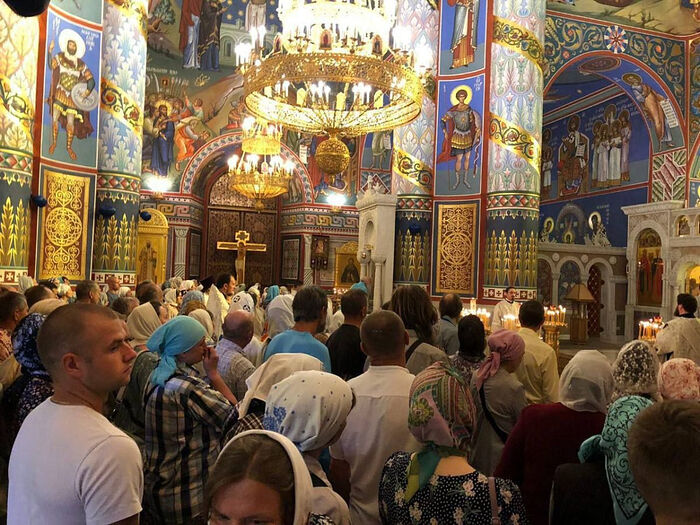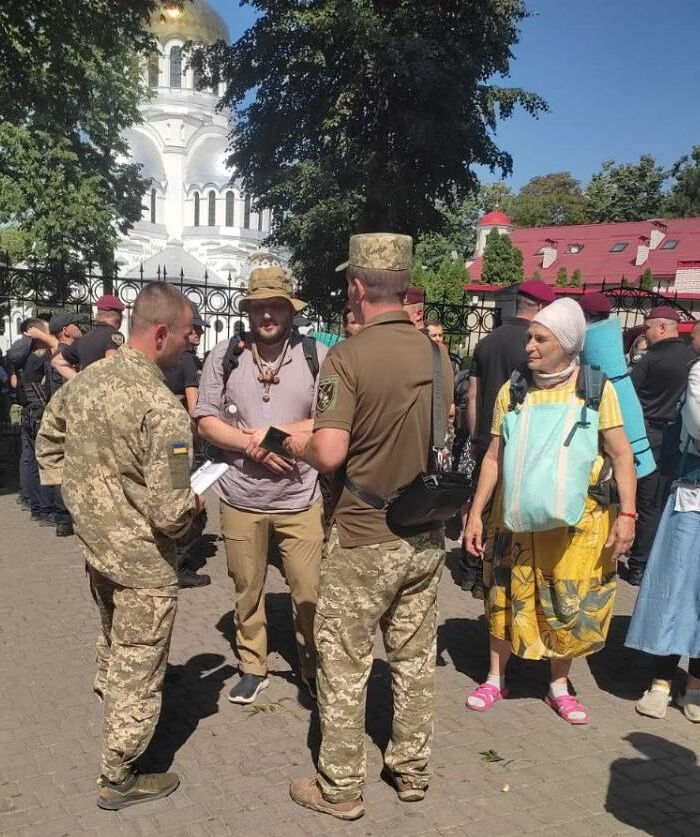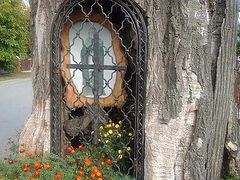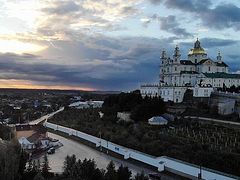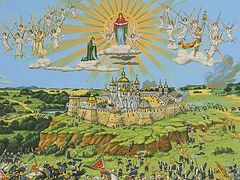Pochaev, Ternopil Province, Ukraine, August 21, 2023
The authorities in Western Ukraine are working hard to block thousands of faithful Orthodox Christians who are trying to continue their centuries-old tradition of prayerfully processing to the Holy Dormition-Pochaev Lavra for its patronal feast of the Dormition of the Most Holy Theotokos on August 28.
For several centuries, Orthodox Christians have set out from Kamenets-Podolsk every year on August 19, the feast of the Transfiguration of the Lord, headed for the Lavra, 125 miles away. Various other processions head out from other cities and villages as well.
However, like last year, the authorities are doing everything they can to stop the faithful: Buses with pilgrims are turned away, the entrances to the city’s cathedral are blocked, and the authorities are handing male participants draft notices.
Meanwhile, Greek Catholics and Hasidic Jews are allowed to organize pilgrimages, reports the Information-Education Department of the canonical Ukrainian Orthodox Church.
During this traditional pilgrimage, everyone has “the opportunity to temper their body and soul to some extent, to learn to have compassion for their neighbors, to humble themselves, to endure, to show Christian love and virtue,” the UOC writes. In recent years, it has also been an opportunity to pray for peace in Ukraine.
For faithful Ukrainians, the procession is also a “special manifestation of love for the Most Holy Theotokos and the Holy Dormition-Pochaev Monastery, which is under the protection of the Mother of God.”
But this year, the procession has been officially banned in certain cities and regions. The mayor of Kamenets-Podolsk, Mikhail Positko, said he would do everything possible to prevent the people from prayerfully processing to the monastery, calling it a “provocation.”
Thus, on the morning of August 18, police surrounded the St. Alexander Nevsky Cathedral in Kamanets-Podolsk and began dismantling the tents that pilgrims traditionally stay in before the start of the procession. The same day, the authorities began handing out draft notices to pilgrims at several locations.
Elsewhere, the police and Security Service have stopped pilgrims, speaking and behaving very rudely to them, and forced them to return home. Pilgrims who have managed to continue on their way have been forced to do so with serious detours, as they are prevented from passing through certain localities.
Policemen and Security Service agents are recording the personal data of participants and promising them “major problems.” Bus drivers transporting pilgrims have had their licenses suddenly revoked.
Meanwhile, the UOC notes that the Greek Catholics have been allowed to hold at least five pilgrimages this summer, in addition to pilgrimages by the Latin Catholics; and Viktor Yelensky, the openly anti-Orthodox head of the State Service for Ethnic Policy and Freedom of Conscience, recently declared that Ukraine is ready to accept 30,000 Hasidic pilgrims in Uman.
Despite the efforts of the authorities, eyewitnesses say about 3,000 people are currently processing to the Pochaev Lavra.
***
The tradition of the cross procession from Kamenets-Podolsk to Pochaev is related to the healing of Anna Akymchuk, a blind girl, near the Pochaev Icon of the Mother of God. In commemoration of that event, Archbishop Innocent, the holy archimandrite of the monastery, established the weekly reading of the Akathist before the wonderworking icon. And every year, pilgrims walk the path of little Anna and her grandmother with a prayer on their lips in commemoration of that event. They walked during the war with the Nazis in 1941-1945, they walked in the atheistic Soviet times too. All attempts of the Bolsheviks to ban the Pochaev Cross Procession were unsuccessful: The faithful still performed their pilgrimage and prayer feat, taking detours, walking in small groups and often at night.
Follow OrthoChristian on Twitter, Vkontakte, Telegram, WhatsApp, MeWe, and Gab!


